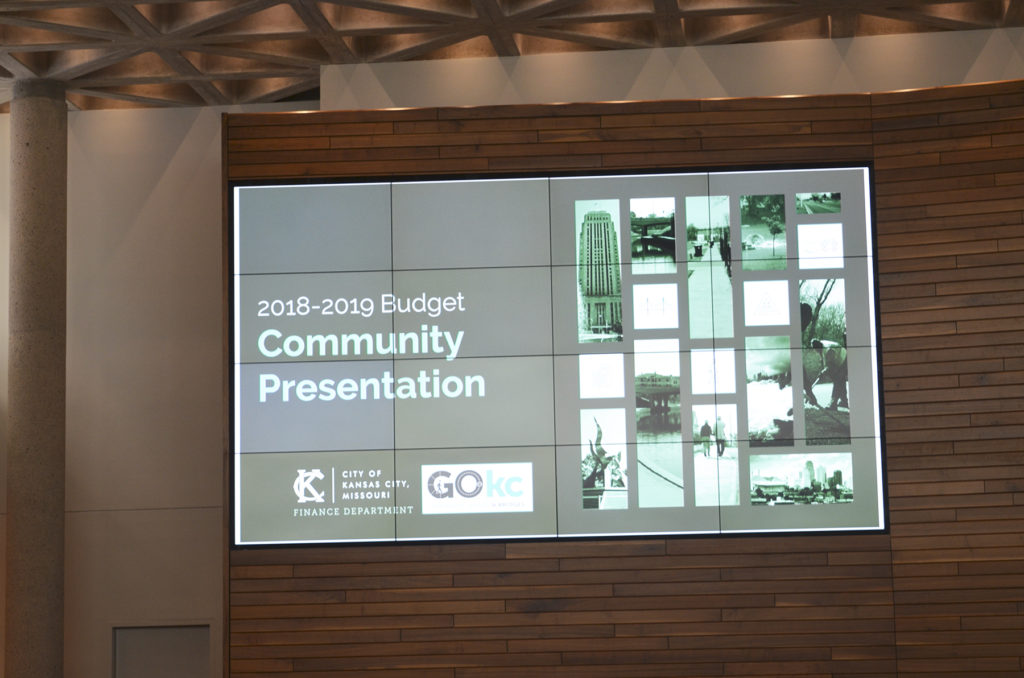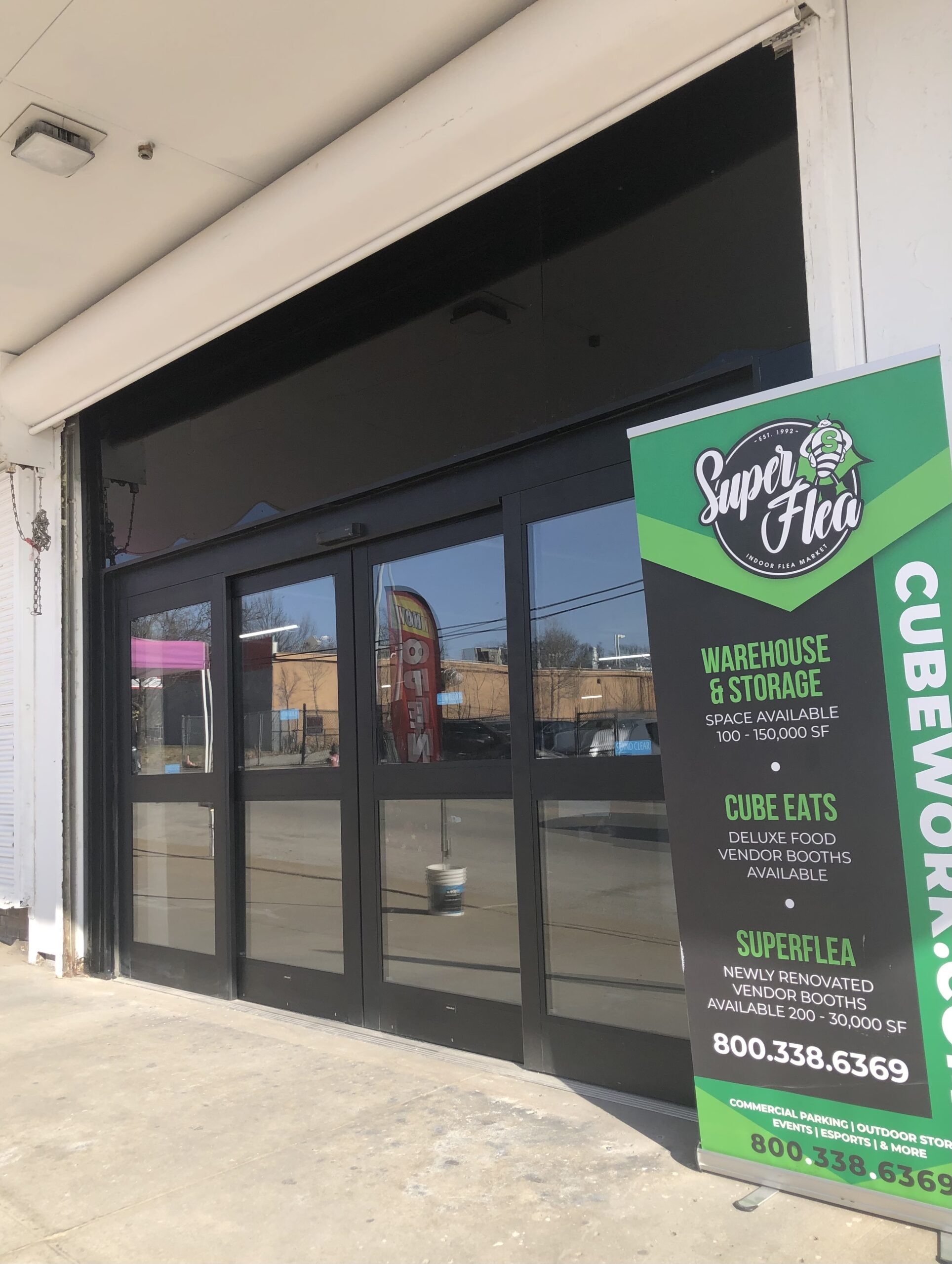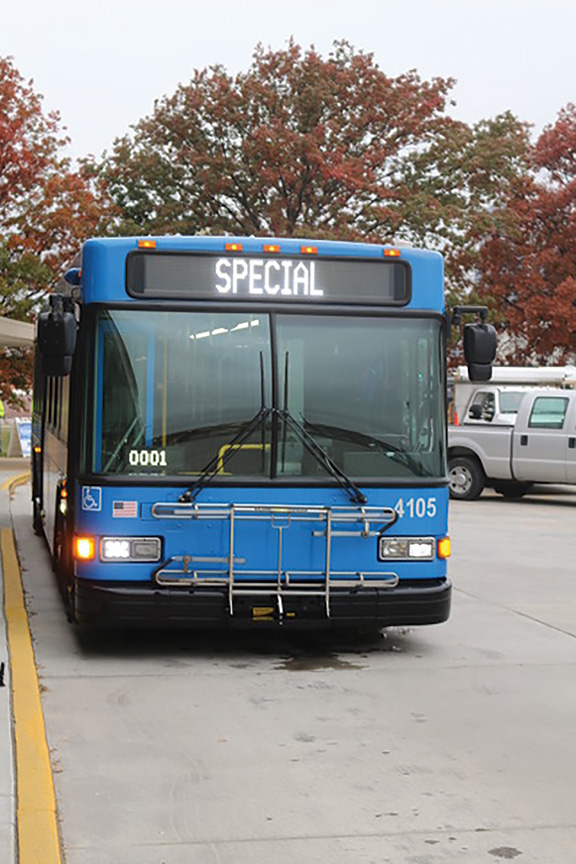 By Paul Thompson
By Paul Thompson
Northeast News
Kansas City residents had a final chance to shape the $1.66 billion 2018-2019 KCMO budget during a public hearing on Thursday, March 8, in the Kansas City Police Department’s community room.
The meeting marked the fourth and final public budget session, as the City Council will now embark on deliberations. The Council is scheduled to pass a final 2018-2019 budget during the March 22 legislative session. Over the next two weeks, the Finance and Governance committee will debate a submitted budget that represents a 4.4% overall increase over the 2017-2018 budget.
As submitted, the budget calls for $601 million for transportation and infrastructure projects, $448 million for public safety, $319 million for planning, zoning and economic development, $191 million for neighborhoods and healthy communities, and $105 million for finance and governance. The percentage breakdown of proposed General Fund expenditures is as follows: 74% for Public Safety (Police and Fire services), 8% for neighborhoods and housing, 8% for administration and finance, 5% for general services, 3% for municipal court, 2% for Mayor, Council, and legislative support, and 1% for Parks and Recreation.
Unsurprisingly, public safety was a popular talking point on March 8, in a room filled with City staff and police department personnel. Scarritt Renaissance resident Lisa Donnici, for one, spoke about the neighborhood’s strong relationship with KCPD. Donnici added that her neighborhood has seen a decrease in car thefts as the police department has dedicated more resources to the Northeast under Chief of Police Rick Smith.
“We’ve had a stronger police presence in the Northeast, and we’ve made remarkable strides,” Donnici said. “The work that’s being done with the increased police presence in our neighborhood is making good.”
Rachel Riley, a member of the East 23rd St. PAC, opined that the 30-year neglect of the city’s east side needs to end. Riley pointed out that the area east of Prospect is in dire need of a community center, suggesting that such a facility could help reduce crime in the area.
“This neighborhood needs a community center,” Riley said. “A lot of things that are going on in our community are because of a lack of.”
Joseph Jackson described a rash of car break-ins that have beset his neighborhood in the recent past. Jackson praised Chief Smith’s decision to re-implement Community Interaction Officers (CIO’s), calling them a “lifeline to our neighborhood,” though he suggested that an increased police presence could deter criminal activity.
“Our community cares,” Jackson said. “All we want is the same living experiences that other neighborhoods want.”
Seizing upon the public comments and the location of the public hearing, 1st District Councilwoman Heather Hall discussed the need for the City to provide as much support for the police department as possible.
“If we don’t have a safe city, it doesn’t matter if we have anything else,” Hall said. “When we say that Public Safety is one of the largest components of our budget; it should be.”
Hall went on to discuss the importance of easing the burden on the police department’s dispatchers, who are working mandatory 12-hour shifts as they struggle to answer roughly 1.3 million calls for service every year. The strain on dispatchers, Hall said, can lead to high turnover in a unit.
“That roughly equates to 3,561 phone calls per day by our dispatchers. That’s roughly 148 phone calls per hour,” Hall said. “They’re not easy phone calls, and these are calls that people need to be highly trained, highly prepared to take these phone calls.”
Fifth District Councilwoman Alissia Canady suggested that the City needs to start having honest conversations about what it’s going to take to improve the public safety of all Kansas City citizens. Fulfilling the police department’s request for additional dispatchers, Canady added, is one way to make Kansas City residents feel safer.
“We have to get the call center fully staffed,” Canady said. “That’s not an option.”
Fourth District Councilwoman Jolie Justus told attendees that under Chief Smith, the police department has opened a line of communication with City Hall that’s more robust than ever.
“I feel like we are now communicating more across this street than we have in a long time,” Justus said.
Sixth District Councilman Kevin McManus said that his constituents were relieved when Chief Smith brought CIO’s back to patrol divisions.
“There was a lot of consternation when the CIO’s went away, and there’s a lot of relief now that they’re back,” McManus said.
Before wrapping up the public input session, 1st District Councilman Scott Wagner urged attendees to get involved with the City’s five-year budget process next fall if they really want to contribute to the City’s long-term budget vision.
“There’s what we can do in a single budget, and there’s what we can aspire to do over a period of time,” Wagner said. “If you haven’t participated in one of these, I will invite you now to participate in our five-year planning that we will be doing in August and September and October.”
To learn more about the City’s annual budget, visit www.budget.kcmo.gov.



















